Kate Bowler: This is Everything Happens. I’m Kate Bowler.
I lived a pretty shiny life, but lately, not so much. On one level, everything is perfect. I married my high school sweetheart. I’m the mom of an amazing little boy. I have my dream job as a professor at Duke Divinity School, where I’m a historian of North American Religion. Maybe not everyone’s dream, but it was my dream. Perfect, right? Except that life has been hard. At 35, I was diagnosed with stage 4 cancer. There was no history of cancer in my family, and then, poof, there I was, trying not to die. I was watching my son learn to walk and trying to keep him away from the toxic chemotherapy bag attached to my waist. This podcast is about those times where you realize your life doesn’t look good on Facebook.
It’s about trying to figure out how to be a human being in a world that loves you more when you are shiny and whole. And what you learn when you aren’t. This is “Everything Happens.”
So I know it may sound difficult or depressing and you’re thinking “please let me get away from this now,” but hold on a sec. In this series I have conversations with some wonderful and sometimes hilarious guests who have made it through their own terrible times. And who have interesting and surprising and even funny things to say about how to make it through the dark.
Before Nadia Bolz-Weber became famous as a foul-mouthed pastor and bestselling author, she was an alcoholic and stand-up comedian. This episode is devoted to the insight of outsiders, and how Nadia learned to confront her own demons with hard truths, good company, and a joyfully inappropriate sense of humor.
One thing I really appreciate when I’m going through my own terrible time is frankness. Another is openness, the willingness to meet peoples’ problems head on. My guest today, Nadia Bolz-Weber, is famous for both. She never … I don’t know, pulls punches I guess … when dealing with life’s hard stuff.
Kate Bowler: Nadia Bolz-Weber is a New York Times bestselling author of books like Pastrix and Accidental Saints, and she’s a speaker and a mom and a church-founder, and she’s really good at crossfit and yoga. And also, she’s a comedian, but we’ll get to that later. She’s also really famous for her super cool tattoos and terrible language, which I find incredibly endearing. She’s a minister, but she doesn’t only preach to the bright, shiny people. Instead, she seeks out, kind of, everyone else. Nadia is annoyingly cool for being a Lutheran pastor, a tradition we should all equate with casseroles and Swedish people in the Midwest. Nadia, I’m so grateful you can make time for this today.
Nadia Bolz-Weber: Oh, thanks so much.
KB: So I have to admit that you’re the kind of person that I always want to tell my horrible problems to. Not the fun secrets, like the genuinely awful stuff.
NBW: Oh, that might be the nicest thing anyone’s ever said to me. I love that.
KB: Do you get that a lot?
NBW: I do. Yeah.
KB: Is that like a skill you’ve nurtured over the years?
NBW: Well, no, I just think I’m such an obviously horrible person, so people are like, “Boy, that bar is low.” So, how bad could my stuff be? Might as well just fess up. Well, it’s also just like, you know, I take people’s confessions and private confession and absolution. And this one woman, after she went through the entire process, and the thing she confessed was juicy, whereas usually when people confess stuff, that I’m like, look, nothing personal, but I’m unimpressed with your sin, like, you should probably go out and try harder, but she confessed something nice and juicy, and when she was relaxed and kind of laughing at the end, she goes, “I’m so glad you’re my pastor because I just, I just know that you’ve done much worse than that.”
KB: Well, I’ve thought a lot about the kind of person you want to tell your horrible stuff to… and when I read your book, I kind of wondered if a lot of what set you on your present path was that first church, who was really church to you. Do you mind telling us a little about the Rowing Club, as you called them?
NBW: Oh yeah, I mean, you know, as somebody in recovery, it’s just hard to do on your own. You know, you have to do it with a group of other people who are messed up in the same way you are but have found some light, in their darkness. And so, you know, sitting in those rooms in 12 step meetings, you just sort of, um, I don’t know. There’s a particular type of hope that only comes from being in the midst of people who’ve really suffered and who’ve suffered at their own hand. And can be completely and totally honest about that, you know? I mean, there’s so much more hope to be found there than to be found in people who their project is being as good as they can. I don’t know how to say that.
KB: Tearing down their kitchen. I hear a lot of people’s dreams. And their dreams seem really Instagram-y.
NBW: Yeah, yeah, my dream is to take a yoga class where I don’t get angry.
KB: I like thinking of you as bringing rage to hobbies that don’t necessarily elicit rage.
NBW: Yeah, yeah. Yoga makes me … there’s always a point, and you know, it’s always a 20- year-old in $100 yoga pants who’s teaching the class.
KB: Oh yeah, she’s doing great.
NBW: Who will keep me in horrible, uncomfortable positions for like, really, purgatorial amounts of time until I start grimacing. Until she’s like, “We’ve learned so much about ourselves on the mat.” You know, I’m like… ughhhhhh.
KB: I learned that I hate you.
NBW: Exactly.
KB: So you cultivated, though…I think part of what I immediately loved about you is that you tend to cultivate the company of others who get that suffering, who get that outsider-ness. Are those people from your first church still kind of your template of those who you surround yourself with?
NBW: Yeah, in a way. There are ways in which my congregation looks like two different communities I was a part of before I started the church, in a way I wasn’t aware of until after I started going to the church I’d been going to for a couple of years. And one of them definitely is, you know, 12-step community, in terms of truth telling. I feel like, you know a lot of these 12-step programs are held in churches. And I’m like, man, people are speaking honestly about their lives and are connecting to God and to one another so much more frequently in church basements than in church sanctuaries.
And so I think House for All Sinners and Saints, the congregation that I’ve served for 10 years, that I’m the founder of, is a little more church basement-y than church sanctuary. That like, stark honesty about ourselves, and our lives in the world that is spoken in that room. And the other one is, oddly this Unitarian summer camp that I worked at for five years in my early 20s, and it was, um, it was just such a profoundly accepting place. And it was the first time that it felt like being me was a good thing instead of a problem. And I showed up there on staff, and I was like, celebrated. People were like, “You’re awesome,” and I was like, “I don’t get that reaction much.” You know? And being in a space where I felt accepted and even celebrated, man, it allowed me to relax into myself in a way that felt holy, and so, I think that’s one of the things that people end up saying about the congregation.
People are just accepted. You just walk in the door, you can relax. So I think that my congregation ended up being this weird combination of these two communities that affected me so profoundly.
KB: Wow, and remind me again, why were they called the Rowing Club? Why would you call them that again?
NBW: Well, it’s because there’s this sense of, like, we’re this rowboat of idiots who are just doing as best we can, and when one of us jumps ship, everybody else has to paddle harder. And it really had to do with my friend P.J. committing suicide. He was a fellow stand-up comic and member of the Rowing team of this 12-step meeting I went to, and when P.J. died, it felt like all of us had to row harder.
Because there wasn’t a lot separating us from P.J. And he had been doing some of the rowing for us. And I actually think there’s faith that way, in a sense as well, I’ve been known to say that faith is a team sport, not an individual competition, in that we hold the faith on each other’s backs. So when I can’t believe, someone else is believing for me, and vice versa. Sometimes we’re the ones being lowered through the roof to Jesus, and sometimes we’re the ones doing the lowering. And I just think of it collectively in that sense, you know?
KB: I mean, I loved your writing about how you really became a pastor in those moments, a pastor to that particular, beautiful community, at a funeral.
NBW: Yeah, I never meant to be a pastor. Nobody had met me and thought, “You should go to seminary,” you know? But it was the fact that P.J. died, and my friends just looked at me and thought, “Well, you can do the funeral, right?” And I wasn’t in seminary at the time, it was just that I was the only religious one in my friend group, you know? And then I was standing there looking out, it was at the comedy works at downtown Denver, and it was just packed with queers and academics and comics and recovering alcoholics, and I was giving P.J.’s eulogy, and there was this way, and I just looked and I thought, “They don’t have a pastor.” Then, my next thought was, “Oh shit, uh, uh, I think that might be me. What? What?” My call, ‘call to ministry,’ was really particular. Not generic, it was really particular.
KB: It seems like it came about in this really unvarnished way. I wonder, I mean, I wonder if you still, when you’re doing funerals now, if you feel any of the same things you felt during the first moment, if there’s like something you discovered about how to do that hard work that just felt like it fit?
NBW: Well, yeah, I guess I never thought about that. I’ve only done a couple funerals. We don’t really have elderly people in my congregation so to speak. I think my parents might be the oldest people in the church, in their 70s. So I’ve only done a few funerals. In ten years of being a pastor, I think I’ve done three. So it’s not a huge part of my pastoral practice.
But I think just in terms of being unafraid to speak the truth, you don’t have to make up things. You can just speak the truth, because if you do that about somebody, both the good and bad, then there’s going to be hope and humor and grace in it. I like to say that nothing is ever only one thing. Like people are never only one thing. So, I think even in death, you know, we can tell the whole truth and it’s okay. So there’s more hope to be found in the sort of both this-and-this thinking than this-or-this thinking, so both and rather than either or.
KB: You know, weirdly enough, that was my favorite part of the Tina Fey memoir is when she said, “The best thing from comedy was the ‘yes, and.’” I really found the worse my life gets, the more I really revel in the absurd humor of life. Does that make sense to you?
NBW: Absolutely.
KB: I mean, before you were a pastor, you were a stand-up comedian. I love that line in your, I think it’s in Pastrix, how you learned honesty in these green rooms of comedy rooms, but it was kind of an emotional Darwinianism. That people spoke the truth, but they’re eating each other alive. I wonder though, if you found a comedy that actually helps in dark times.
NBW: Oh my gosh, absolutely. I mean, that’s why, like super happy people who haven’t had much suffering and don’t have unusual brain chemistries usually aren’t that funny.
KB: Now I feel like I know a bunch of girls named Kaitlin, and their lives are going great. But they aren’t the funniest people.
NBW: I mean, it is this sort of interesting survival mechanism that we have as a species, because interesting thing about laughter and humor, is there’s a brain chemistry element to it. It’s a bit of a reset button for our brain chemistry, if we can laugh, so it keeps us from being pulled under too deeply. Like that’s how we come up for air. The other thing I think is important to note about humor is it’s never funny to talk about it. There’s no way when discussing humor. It’s like when somebody has to explain a joke. Also, I feel like in some ways it’s bizarrely related to someone’s social media profile, when they say they like to have fun. You know? You can be guaranteed that they’re not actually a fun person to hang out with.
It’s they see other people having fun, and they know that that looks enjoyable.
KB: Well, scrapbooking stores are made for those who know how to have fun. But I do love, though, I love in your writing how transparent you are about how the fact that during your worst moments, they were also some of your more comedically fruitful times. So, was it, I mean, you’ve been pretty transparent about your early years of comedy. Was that the same time when you were battling alcoholism?
NBW: Oh yeah, yeah, for sure. And also, just to note, some of the funniest people are ICU nurses.
KB: Yes, yes yes yes.
NBW: Okay, like I’ll just say, when I was doing CPE – CPE was a clinical pastoral education, where you have to go be a chaplain for a while – I found them terrifying. ICU nurses are terrifying, I just tried to keep my distance, but I was checking in on this one patient who I was following. She tried to commit suicide, she took a lot of pills. And she had a brain injury from the overdose, and they were keeping her under, waiting to see what her functionality would be. So every day I would check in, I’d be like, “Is she awake?” They’d be like, “No…” so we didn’t know what her functionality was going to be like, and so finally I went, and I said, “Is she awake?” And they go, “Yeah, yeah.” And I said, “So?” “Yeah, well you know, she’ll never be a Jeopardy contestant. She’ll play a hell of a Shoots ‘N’ Ladders.” And I was like, only people who are constantly around tragedy could make that kind of joke.
KB: Yes, yes. I’ve always had those, like my high moments have always been those pre-surgery moments.
And some of them have been unconscious like when I grab the nurse and pull them really close to my face for my wisdom teeth removal and say, “Keep the teeth, I’m making a necklace for Toban.” Yesterday, when I made those comments to the internist, “And how do you know how this procedure is done?” And I was like, “Well, the surgeon will claw through my skin like a badger,” and I’ve just been … aware, I think maybe for ministry and for nursing, that there’s a pageantry that you have to go through that also makes you aware of the heightened human drama.
NBW: Like, my congregation, there’s a lot of just uproarious laughter. Usually, when we do something wrong, we think it’s hilarious, like we’re anti-excellence, pro-participation.
So you can imagine nothing’s ever really done that well, and we think it’s so funny. But also, they laugh, uh, most weeks, the congregation laughs during the scripture readings. Because it’s like, just there’s so much human folly in scripture. So instead of being pious and listening to like, what’s the Lord saying to me, you know, in a way, they’re listening for like, where am I in this? Where is the folly in this text? And they just laugh. There’s a lot of humor and sort of what other people consider inappropriate laughter throughout our life in a community, and it’s related to suffering in a sense. I think because it’s a congregation that’s unafraid of suffering, unafraid to speak the truth of suffering, that that excavates something out of us that joy can go deeper, that laughter can go deeper.
Because that suffering has excavated something out within us. I can’t fully explain how our capacity to hold suffering relates to our capacity to hold joy, but man, I think they’re related.
KB: Oh, I think that’s exactly right. I mean, that was one of the weirdest – I don’t know like this past month has been particularly dramatic with health and – you know, the second I got bad news, it was weird, but I woke up the next morning, and I sort of felt like someone had slapped me in the face, and I felt like bright and clear. And some of it was, I had to take this stupid work trip, and sorry, wonderful work trip for those that I live with, and uh, and I got off the plane, saw a friend, and said, “Do you want to go visit the world’s largest Ukrainian sausage?”
And they’re like, “Yes, yes I do.” And it went right to the love of absurdity, standing in a field jumping up and down for no reason, throwing a party where we all have to dress up like Christmas album covers. I just wanted to do the stupid and the fun. And yeah, I think that’s right, like the pain digs something out. And joy fills it. I was thinking about how hard it is to hold onto the lessons you learn when you are broken, because I mean, I know you surround yourself by people, you cultivate, um, that sense of fragility, I think in your life, and I think that’s really beautiful. But sometimes I think when I go through something awful, it’s more like pregnancy and childbirth. It’s terrible. I remember it. I’m deeply implicated by these lessons, and then it’s over! And I find it really hard to hold onto the sense of connectedness I had with other people who were also in pain.
Do you think we’re sort of destined to forget the important things that we learn?
NBW: Um, I can’t remember. [laughter] Yeah, of course. That’s the hard thing, is when I’ll have some aha-moment, a moment of clarity or something like that, and then, and then, nine months later, I’ll think of it again for the first time in nine months. Do you know what I mean? I think it is. There’s only, you know, how much of a capacity for growth can we realistically have? I mean, it’s kind of like Tide detergent has been improving itself since it was invented – New and Improved! I don’t know, how much … I mean, I think that, my hope is that we grow in wisdom, that there’s wisdom that can sort of accumulate maybe in our lives.
That’s my, I mean, if I have any hope for humans, it would be that, more than the hope being we don’t make mistakes or we remember all of our lessons, or we’re constantly improving like Tide detergent. Or we’ve undergone the process of our own sanctification so perfectly that we don’t actually need God anymore.
KB: No, that’s a good Lutheran answer. Yep, yep. Why is community, then, so important to make us stop being total monsters?
NBW: Well, because it provides something we can’t provide for ourselves. But it also confronts us, like, one of the reasons people avoid community is because other people are disappointing. You know? And yet, by being in community, we take turns being the ones who are disappointing.
And then, forgive each other and move on. And you know, maybe it’s that guy’s turn to be disappointing, but next week it’ll be me. So it’s that culture of turn-taking when it comes to being the ones who need grace, or who are giving grace, or who remind each other that grace is a thing. That’s why I think communities that are set up, like, here is the designated helpers and the healthy people, and here are the designated problem people. That it’s BS. Everybody’s both. I’ve seen the more highly functional people in our community have a need met by some of the less functional people in the community.
NBW: And so, I think if we tell ourselves the story other than that, we’re just not getting it. You know?
I struggle with church. I mean, I had to start a church I’d feel comfortable showing up. But church in general is so limited in the ways in which its embodied and expressed. And it feels accessible only to certain types of people, like if you happen to have that personality and have that life-story, it’s a great fit for you and you’ll feel comfortable, but like, what about everyone else?
That’s why I’m like, I think House for All Sinners and Saints is like, if you took one of those colanders, like those pasta strainers with the round holes in the bottom, and you put all the Christians in Denver in this, or even the people who were even vaguely interested in Christianity in the big colander, the ones that are too oddly shaped to fit through the holes, the ones that are left in the bottoms afterwards, that’s House for All Sinners and Saints. They’re too oddly shaped to go through the holes.
KB: That would make a nice banner. “It’s the lumpy church!” Exclamation point.
NBW: My dad calls it, it’s kind of like high church at the Star Wars cantina.
KB: Oboe players as far as the eye can see… that’s so funny. You know, I think for me, one of the most painful parts of going to church and being sick, is I’m often forced to explain why I’m sick, like I’m the problem to be solved. I think everywhere I go, and every Facebook comment section is a lot of, “everything happens for a reason.” I wonder why you think people insist on being so trite about suffering.
NBW: Because our own fragility is terrifying to us. You know, it’s why people who are physically disabled are hard to be around. Because one thing could happen to me and I could be physically disabled for the rest of my life. And I don’t particularly like to embrace that fragility, I like to ignore that it’s even a thing or a possibility.
So, it’s easier to go, “well, there’s a reason it’s happened to that person.” Or whatever. I think it’s that we’re terrified of certain parts of ourselves. Yeah. I mean, this was a huge thing for me, which I’ve written about, is like, why are there so many socially awkward people at House for All Sinners and Saints, and I’m like, “Why aren’t I attracting people like me?” And it wasn’t until I was able to really look at my story and myself and things I tried to hide and not show and stuff from my childhood that was really painful, that profound alienation I experienced in my life, like when I was able to look at that, I was like, “Oh, well, I have been attracting that are like me from the beginning. But it wasn’t the funny tattooed sarcastic person, it was the bug-eyed sick painfully skinny girl who ate all of her lunches alone in middle school.” That’s who’s bringing them in.
Instead of reacting and being like, “this person is making me uncomfortable,” you know, I kind of went, oh, by loving them and accepting them, I’m loving that 12-year-old girl in me who I’ve done nothing but try and hide from everyone. It’s hard. I mean, that’s hard work. So when people are sick, that makes us uncomfortable. We don’t want to be next. We don’t, that kind of fragility and uncertainty is a pretty devastating thing, so we try to cover our ears and go “la la la la.”
KB: Or love the shiny version of me. I really like that.
NBW: Gosh.
KB: Well, you know, this makes me think of all the times in the last couple of years when I’ve been the most raw, the most exposed, and the most vulnerable, and I have found it almost impossible to separate how I see other people from how they see me. You know? And in the midst of the most vulnerability, I think it does require the kind of community, the kind of coming alongside, the kind of forgiveness you’re describing, in which we take our burdened selves to each other and we say, I see that.
NBW: Right.
KB: It’s going to be okay. So, what do you say to people who think they’re too hurt for community?
NBW: Well, sometimes I’ll say, “vulnerability is invitational.”
When people have risked telling the truth about themselves in our community, that has been unbelievably healing for other people, for whom that thing is also truth and have not been able to say it yet. So I think that, again, it’s the rowing team idea. When somebody says something, like takes that risk, and I identify with it, I feel less shame, I feel more hope. I feel less hidden and alone. We do that for each other, you know? And I think that’s an important piece. And that’s the only …
You know it’s funny because will fault me for using, for saying bad words, and you know, as a pastor, and on social media. “You’re supposed to be an example!” An example of what? Competitive piety? Pretending to be somebody I’m not? Look, if I’m supposed to be an example of something, I’m an example of what it looks like to be in need of grace.
I’m an example of what it looks like to receive grace I didn’t deserve.
KB: Is there something in the midst of terrible times that someone can say that’s especially helpful? I get that question a lot, and I’m curious as to what you’d say.
NBW: I don’t know. I mean, I can tell you what I said to my daughter when she had her first boyfriend. Last year.
And she was really happy. And I said “Honey, there’s a reason so many songs and poems and movies and blah, blah have been written about this feeling. Because it’s amazing. And, you know, if this goes south, or he hurts you, or you break up, there might be a commiserate low to the high you’re feeling, and that will feel as shitty as this feels good. And if that happens, you should just know a couple of things. Just because it feels bad doesn’t mean something’s wrong. And nobody escapes that.”
You know? Like, this is part of the deal. So, um, I don’t know. I think that those kinds of ideas, you know, the reason it hurts is because it’s painful, not like, the reason this thing in your life is hard is because hard things in life are hard.
It’s not a spiritual failing of yours that this feels bad. Hard things feel hard. Period.
KB: Yeah, that’s a perfect thing to say. In the hospital, I always say, “This sucks because it’s painful.”
NBW: Correct.
KB: I’m exhausted because it’s exhausting. And sometimes the truest thing we can do for each other is to look honestly at one another’s pain and say, “Wow, I can honestly say that that sucks.”
And it brings me back to my first thought about you. You’re the one I really want to tell all my horrible stuff to. And thank God for that.
NBW: Really. Aww. I’ll hear it anytime. I love people’s horrible stuff.
KB: Thanks so much for doing this today. I really appreciate it.
NBW: You bet. Anytime.
KB: Talking to Nadia makes me wonder if we all need to go to Alcoholics Anonymous immediately and just learn some things. Her whole imagination for what church should be like and what friendship should be like seems to rest on a couple of ideas that are staples for anyone in recovery. First, tell the truth. It hurts, but it also sort of feels good. Tell the truth about yourself, and be the kind of person who wants to hear it when someone else says, here is my horrible secret. Second, you’re probably useless by yourself. Nadia had that rowing club, her wonderful rowboat of idiots, she said. I had my besties, who flew in to save the day.
My two best friends from Canada flew down to North Carolina, and then drove the seven hours with me to Atlanta, just so they could be there with me when I got my first chemotherapy treatment. Because I was terrified. All I could picture were these awful chemical pumping into my body, and I thought I would immediately never be the same. So they came along for the ride. They brought snacks. And they made fun of the hypochondriac nurse who advised me to never take a nap again. They fixed my hair, and they took pictures in order to perfect the chemo selfie. I needed them to be there and to tell the truth, even if the truth was, “Oh honey, yeah, you look awful.”
But then, one of them took out some concealer. And we were off to the races again.
So in the next episode I’m going to talk to my friend Ray Barfield. Ray was the best person for me in the worst moment of my life. Ray treats kids with cancer. So somewhere along the way he had to figure out how to let people break your heart.
Everything Happens is produced by Duke University in association with North Carolina Public Radio/WUNC. Support comes from Faith & Leadership, an online learning resource.
This podcast is produced by Beverley Abel and Alison Jones. Sound engineering is by Dennis Foley with assistance from Ivan Panarusky. Special thanks to Amanda Hite and the Be the Change Revolution team and Random House.
And we’d love to hear from you. If you like what you’re hearing, please post a review on iTunes. And while you’re there, be sure to hit that subscribe button. You can find me on Facebook (always), Instagram (often) and Twitter (every day) @katecbowler. Let’s chat.
Until next time, this is “Everything Happens” with me, Kate Bowler.

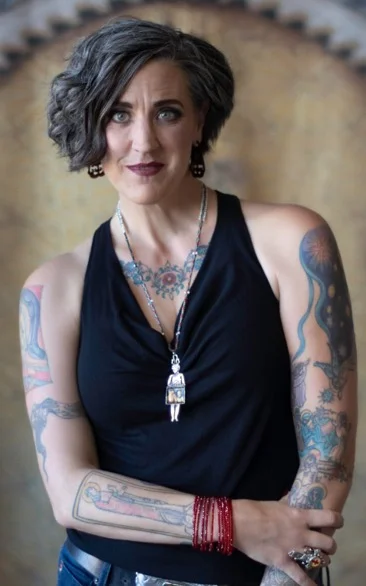
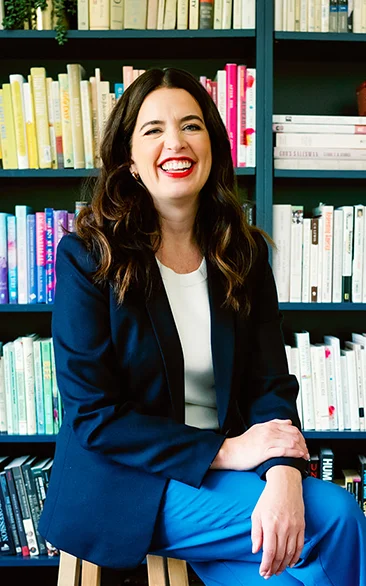


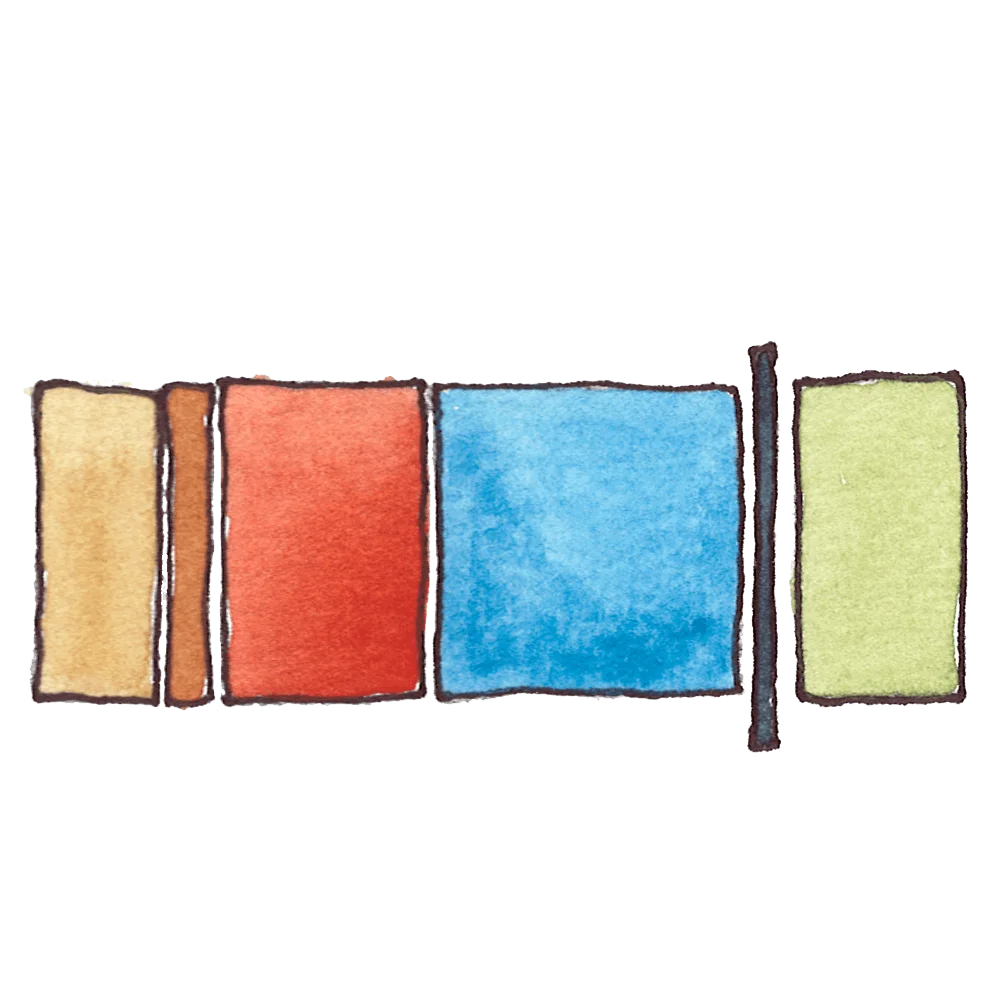





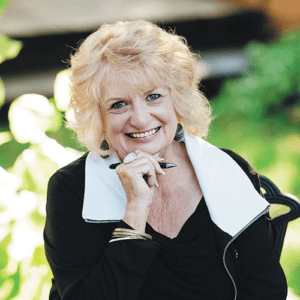
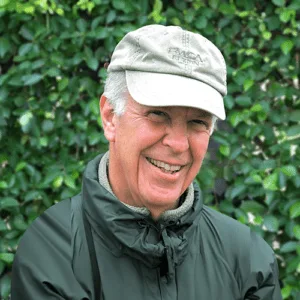


Leave a Reply